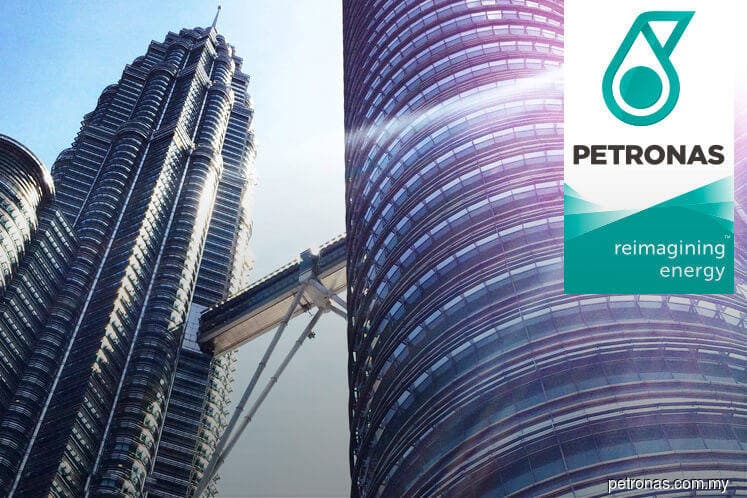
This article first appeared in The Edge Financial Daily on June 12, 2018
KUALA LUMPUR: Petroliam Nasional Bhd (Petronas) is seeking a court order to stop Sarawak from flexing its professed oil and gas (O&G) regulatory powers until its legal tussle is resolved.
The national oil company’s application to preserve the status quo runs parallel with its application for leave to commence proceedings against the Sarawak government. The proceedings will be to seek a clarification from the Federal Court on who is the rightful regulator for upstream activities in Sarawak. The application for leave will be heard by the apex court on June 21.
In further documents submitted to the court last Friday, Petronas expressed concern that Sarawak may go ahead with a proposed regulatory framework from July 1 regardless of any court proceedings.
That scenario, said Petronas, may disrupt its activities in Sarawak as the company is not licensed under the state’s proposed legal framework.
Petronas noted that such a disruption would have commercial impact and “serious financial implications”, not only in loss of revenue but also cost of preserving facilities, as well as cost of resuming operations.
It added that on June 6, it proposed terms for the preservation of the status quo pending the court proceedings. The proposal was extended on the basis that any agreement would not be construed as a concession from either party on the matter. But the proposal was rejected by the state on June 7 via telephone.
Petronas added that it believes the Sarawak government will not be prejudiced by a status quo preservation order.
To recap, on June 4, Petronas filed an application to the Federal Court to seek clarity on the rightful regulatory authority over upstream O&G activities in Sarawak. The application named the Sarawak state government as a respondent.
It is seeking a declaration that the Petroleum Development Act 1974 (PDA), which created the national oil company, was validly enacted.
Thus, Petronas is also seeking a declaration that the PDA confers upon it the exclusive ownership and sole regulator status for all upstream O&G activities nationwide, including in Sarawak.
The June 4 application was filed amid Sarawak’s repeated assertion that all players undertaking upstream O&G activities in the state must have requisite licences, permits and approvals from the state beginning July 1.
The assertion had caused confusion and uncertainty among production-sharing contractors who are unsure of whom to deal with for regulatory clearances, Petronas said.
In a letter dated April 13, the Sarawak attorney-general officially written to Petronas expressing the state’s intention to enforce the licensing requirements and advised Petronas to contact Petroleum Sarawak Bhd (Petros).
Petros is a wholly state-owned entity that would be issued exploration and mining leases under Sarawak’s proposed O&G regulatory framework.
Sarawak’s legal reasoning is primarily based on the Oil Mining Ordinance 1958.
In a handbook on the proposed framework circulated last month, the state claims that while the PDA has vested ownership over all petroleum resources throughout Malaysia in Petronas, the act itself does not constitute a mining lease.
Therefore, the state argues that powers to issue licences and permits for petroleum exploration and prospecting remains with the state government.
However, in a May 22 letter, Petronas rejected the state’s legal reasoning underlying the claim to regulatory authority, and says it is not required to obtain such licenses or leases from the state.
In its June 4 submission, Petronas argues that the enactment of the PDA had impliedly repealed the Oil Mining Ordinance.
Furthermore, it also argues that in any case, the formation of Malaysia on Sept 16, 1963 caused the Oil Mining Ordinance to become a federal law — meaning the state no longer enjoys the regulatory powers under that law.
In its June 8 submission, Petronas states that Petros had not applied for an upstream activity licence from Petronas and that if Petros engages in any such activity, it would amount to a “criminal offence”.
Despite the narrow question of regulator status that Petronas seeks to clarify, the legal action has become a hot-button issue in Sarawak where state nationalism has been on the rise in recent years.
The rising state-based nationalism has seen a push to regain allegedly eroded rights provided under the Malaysian Agreement 1963, including the pursuit of more income from O&G resources found within the state.
Last Sunday, a local English daily, The Borneo Post, framed the legal tussle as “in reality, it is a fight between the federal government and Sarawak, and states with O&G resources”.
“It is not unreasonable to conclude the suit was initiated with a tacit approval of the Pakatan Harapan federal government as under the PDA, Petronas is answerable to the prime minister,” the newspaper wrote.
Last week, Prime Minister Tun Dr Mahathir Mohamad told reporters that he would leave the matter to Petronas when asked for his opinion.
In 2015, Dr Mahathir — at the time an adviser to Petronas as a former prime minister — opined that while the oil royalty quantum for some poor states should be increased, 20% is “too much”.
Notably, both Sarawak’s Barisan Nasional and Pakatan politicians are working together to oppose the Petronas legal action.
In May 2014, the state assembly unanimously passed a resolution to request an increase of the state’s oil royalty from 5% to 20%.
The 5% royalty is provided under the existing PDA whereby both the federal and state governments receive 5% each. The motion on the increase was originally tabled by state opposition leader Chong Chieng Jen.
The Pakatan manifesto had also promised to increase O&G royalty to oil-producing states to 20%. However, Pakatan did not capture Sarawak in the recent general election as its state assembly seats were not contested. It is due to have state elections in 2021.